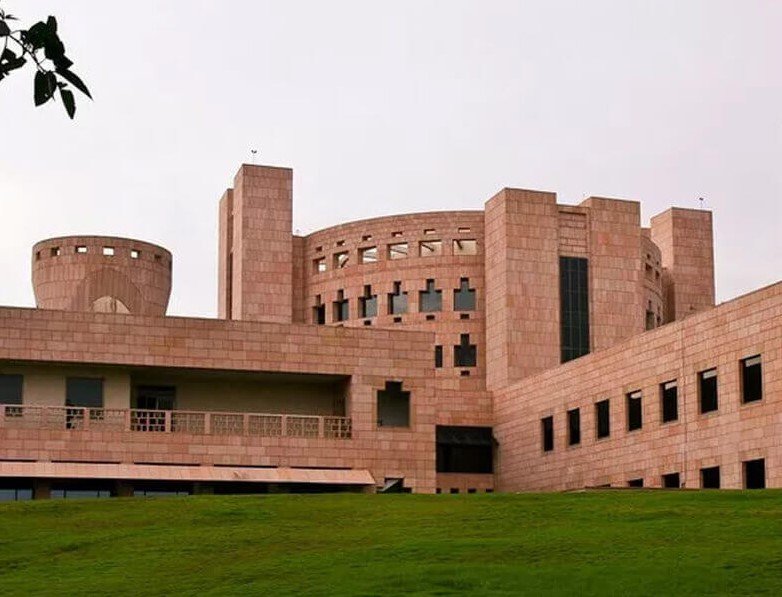If you are looking for the Top 10 MBA Colleges in India, you are at the right place. About 100+ top MBA colleges are located in India. Out of these, 64 are privately owned, 43 are owned by public/government organizations, and one is owned by a public-private organization. It is the dream of every MBA aspirant to study at one of the top MBA colleges in India. There are 21 IIMs in India, as well as top MBA colleges at universities like FMS Delhi, IIFT Delhi, etc.
In light of the commitment and expense involved in pursuing an MBA, some may wonder if it is worth it. We have outlined the top MBA Colleges in India in this blog, including their tuition fees, average placements, and batch sizes. The MBA Colleges have been categorized based on their relative importance.
Top 10 MBA Colleges in india
1. IIM Ahmedabad
IIM Ahmedabad, founded in 1961, is the second oldest IIM and consistently ranked as the best business school in India. IIM Ahmedabad offers two-year PGP (MBA) programs that are admitted through the Common Application Test.
CAT cutoff remains around 80 percentile for shortlisting at IIM Ahmedabad, and students with over 99 percentile have a good chance of getting an interview call. In the consulting and finance domain, IIM Ahmedabad is renowned for its stellar placements.

- Fees for MBA: INR 25,00,000.
- NIRF Ranking: 1st in 2023.
- NIRF Score: 83.20.
- Infrastructure and Facilities: Spread over 102 acres, the campus includes state-of-the-art academic blocks, a library, sports facilities, auditoriums, student and faculty housing, and more.
- Highest and Average Package Offered: The highest package is INR 1.15 Crore per annum; the average package is INR 34.36 LPA.
2. IIM Bangalore
IIM Bangalore, founded in 1973, is one of the top 7 MBA colleges in Bangalore and a prominent graduate school of Management in Asia.
Known for its distinguished faculty, who have received education and taught at renowned universities both in India and abroad, IIMB offers a variety of programs such as Certificate, Postgraduate, and PhD courses in the field of Management.
Additionally, the institute also assists students with placement opportunities. Admission to IIM Bangalore is based on various entrance exams such as CAT, and GATE among others.

- Fees for MBA: INR 24,50,000.
- NIRF Ranking: 2nd in 2023.
- NIRF Score: 80.89.
- Infrastructure and Facilities: The campus includes modern classrooms, a well-stocked library, hostels, sports facilities, and a vibrant student community.
- Highest and Average Package Offered: Highest package – INR 1.25 Crore per annum; Average package – INR 33.82 LPA.
3. IIM Kolkata
The Indian Institute of Management Calcutta (IIMC) was established as the first national institute for Post-Graduate Studies and Research in Management by the Government of India in November 1961.
The IIM Calcutta main campus, covering 135 acres of space, is located in Joka, on the outskirts of Kolkata. It is renowned as the best MBA College in India for Finance.
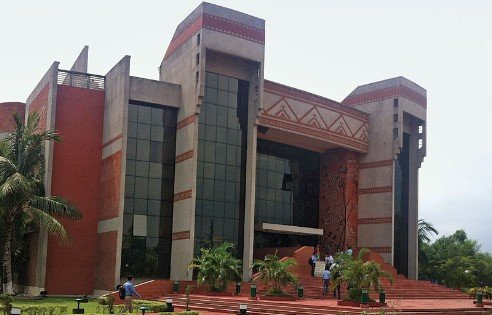
- Fees for MBA: INR 27,00,000.
- NIRF Ranking: 4th in 2023.
- NIRF Score: 75.53.
- Infrastructure and Facilities: The campus features advanced academic buildings, a comprehensive library, sports facilities, and residential accommodations.
- Highest and Average Package Offered: Highest package – INR 1.20 Crore per annum; Average package – INR 32.55 LPA.
4. XLRI Jamshedpur
In 1949, XLRI Jamshedpur was established in the Steel City of India. It is accredited by AACSB, AMBA, and NBA, is recognized by AICTE, AIU, and GOI, and has a strong alumni network, strong industry connections, and a good return on investment. The institute is consistently ranked among the top B-Schools in India and abroad.
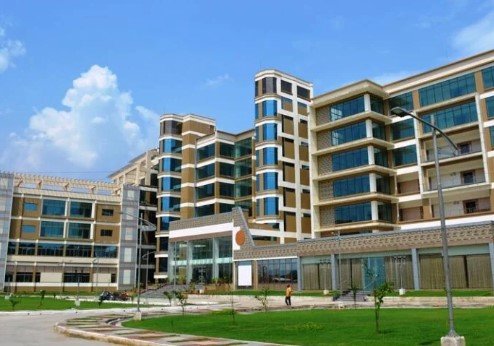
Fees for MBA: INR 23,60,000.
- NIRF Ranking: 9th in 2023.
- NIRF Score: 70.75.
- Infrastructure and Facilities: The campus includes well-equipped classrooms, a library, sports facilities, and residential accommodations.
- Highest and Average Package Offered: Highest package – INR 50 LPA; Average package – INR 25.08 LPA.
5. FMS, Delhi
A part of the Central University of Delhi, the Faculty of Management Studies (FMS, Delhi) was established in 1954 under the aegis of the University of Delhi. It is one of the oldest Business Schools in India. In addition to being one of the top three IIMs in India, FMS, New Delhi is one of the highest ROI B-schools in India due to its quality education, low fees, and excellent placement opportunities.
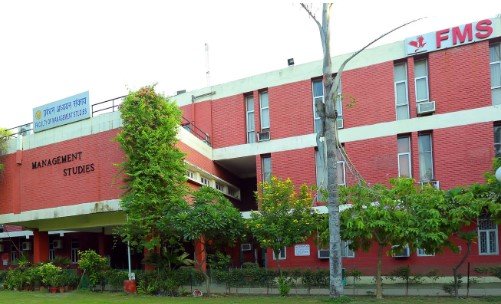
- Fees for MBA: INR 1,00,000 per annum.
- NIRF Ranking: 11th in 2023.
- Infrastructure and Facilities: The campus includes modern classrooms, a well-stocked library, computer labs, sports facilities, and hostel accommodations.
- Highest and Average Package Offered: Highest package – INR 1.23 Crore per annum; Average package – INR 34.1 LPA.
6. SPJIMR Mumbai
S. P. Jain Institute of Management and Research (SPJIMR) was established in 1981 and is renowned for its cultural diversity, Abhyudaya Program, global exposure, and great ROI.
It has been ranked among the best B schools in India and abroad. The SP Jain PGDM program is the institute’s flagship program. It offers PGDM BM, PGPM, GMP, Executive PGDM, Online PGDM, and Doctoral Programs.
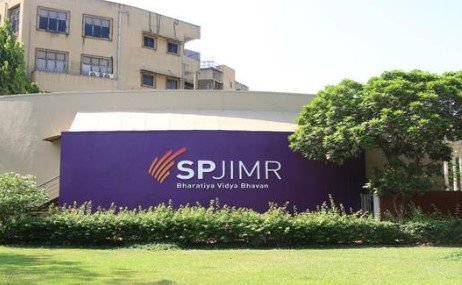
- Fees for MBA: INR 20,42,000 for the entire course.
- NIRF Ranking: 21st in 2023.
- NIRF Score: 60.56.
- Infrastructure and Facilities: The campus includes state-of-the-art academic blocks, a library, sports facilities, auditoriums, student and faculty housing, and more.
- Highest and Average Package Offered: Highest package – INR 77.88 LPA; Average package – INR 33.02 LPA.
7. IIM Lucknow
The government of India established IIM Lucknow in 1984 as its 4th IIM. IIM Lucknow mentors the newly established IIM Jammu, IIM Rohtak, and IIM Kashipur.
Known for its academic excellence, diverse student community, and strong industry ties, IIM Lucknow provides its students with international exposure through international exchange programs and international competitions.
PGP admission is based on CAT scores followed by a Writing Ability Test (WAT) and Personal Interview (PI).
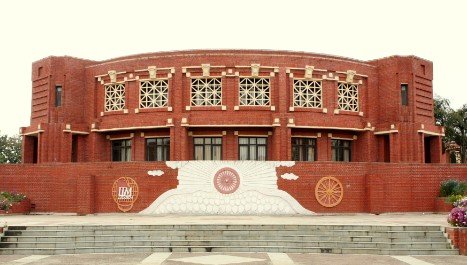
- Fees for MBA: INR 19,25,000.
- NIRF Ranking: 6th in 2023.
- NIRF Score: 72.83.
- Infrastructure and Facilities: The campus includes modern classrooms, a well-stocked library, hostels, sports facilities, and a vibrant student community.
- Highest and Average Package Offered: Highest package – INR 61.59 LPA; Average package – INR 31.03 LPA.
8. IIM Indore
A state-funded institute of management, IIM Indore was established in 1996. As a leader in management education, IIM Indore has interacted with industry, government, and public sector organizations since its inception.
As well as the latest teaching aids, rich learning resources, and a strong IT backbone, IIM Indore has a state-of-the-art sports complex and hostels as well as contemporary infrastructure.
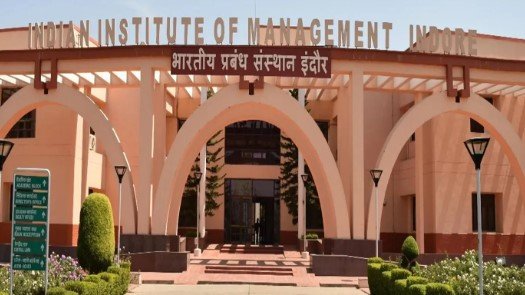
- Fees for MBA: INR 17,06,000.
- NIRF Ranking: 7.
- NIRF Score: 71.10.
- Infrastructure and Facilities: The campus features advanced academic buildings, a comprehensive library, sports facilities, and residential accommodations.
- Highest and Average Package Offered: Highest package – INR 49 LPA; Average package – INR 25.01 LPA.
9. IIM Kozhikode
A premier management school established by the Government of India, Indian Institute of Management Kozhikode boasts one of the country’s most scenic and oxygen-rich campuses, dedicated to developing future business leaders through teaching, learning, consulting, research, and innovation.
On two hillocks in the Kunnamangalam Area of Calicut in Kerala, IIM Kozhikode is spread over 112.5 acres of land.
The growth story of IIM Kozhikode, founded in 1996, is not just about the numbers, but also about several remarkable innovative initiatives that have set the bar for other Indian institutions.

- Fees for MBA: INR 20,50,000.
- NIRF Ranking: 5th in 2023.
- NIRF Score: 73.34.
- Infrastructure and Facilities: The campus includes well-equipped classrooms, a library, sports facilities, and residential accommodations.
- Highest and Average Package Offered: The highest package is INR 58 LPA, and the average package is INR 29.5 LPA.
10. JBIMS Mumbai
In the Department of Management Studies at the University of Mumbai (Bombay), Jamnalal Bajaj Institute of Management Studies is named after the noted industrialist and philanthropist Jamnalal Bajaj.
As a result of a collaboration between the University of Mumbai and Stanford University, the JBIMS was established in 1965.
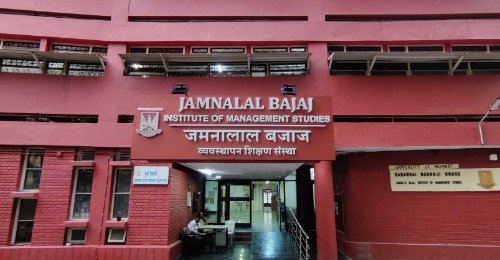
- Fees for MBA: INR 6,00,000 per annum.
- Infrastructure and Facilities: The campus includes modern classrooms, a well-stocked library, computer labs, sports facilities, and hostel accommodations.
- Highest and Average Package Offered: Highest package – INR 44 LPA; Average package – INR 27.63 LPA.
MBA Courses In India
These are the popular MBA courses that are available in India. These are the MBA specializations that are most preferred by MBA aspirants.
1. MBA General or MBA Core
General Management is a popular MBA program because it covers all the core business areas, including HR, finance, marketing, and finance
This provides a broad understanding of business principles, management theories, and leadership skills essential across industries, preparing versatile professionals for various managerial roles.
Pros:
- Versatility: Provides a broad understanding of various business functions like HR, finance, marketing, and operations, making graduates versatile for diverse managerial roles.
- Holistic Perspective: Integrates management theories across different domains, fostering a holistic approach to business problem-solving.
- Leadership Skills: Focuses on developing leadership qualities necessary for guiding teams and organizations effectively.
- Networking Opportunities: Offers extensive networking opportunities with peers and professionals from diverse backgrounds and industries.
- Career Flexibility: Equips graduates with skills applicable across industries, offering flexibility in career choices and advancements.
Cons:
- Depth vs. Breadth: May lack the depth of specialization compared to more focused MBA programs.
- Specific Skill Gaps: Depending on career goals, might require additional skill development in specialized areas like finance or marketing
2. MBA Finance
This course is ideal for careers in banking, financial consulting, or corporate finance for individuals with a strong interest in finance, accounting, and investment.
It also focuses on financial management, investments, risk assessment, and corporate finance strategies, equipping graduates with skills to manage funds, analyze markets, and make strategic financial decisions.
Pros:
- Financial Expertise: Specialized knowledge in finance, including financial management, investment analysis, and corporate finance.
- Career Opportunities: Opens doors to roles in banking, investment management, financial consulting, and corporate finance.
- Analytical Skills: Enhances analytical and quantitative skills crucial for financial decision-making.
- High Demand: Skills are in high demand globally, offering good career prospects and competitive salaries.
- Risk Management: Focuses on risk assessment and mitigation strategies, critical in financial sectors.
Cons:
- Narrow Focus: Primarily suited for careers in finance; may limit career options outside of financial sectors.
- Market Dependency: Vulnerable to economic fluctuations and market trends, affecting job stability in downturns.
3. MBA Marketing
The courses teach students how to compete and outperform competitors by understanding the needs of customers and providing them with a product or service that meets those needs.
It concentrates on consumer behavior, market research, branding, and promotional strategies, preparing students to create and execute effective marketing campaigns in competitive global markets.
Pros:
- Market Knowledge: In-depth understanding of consumer behavior, market trends, and competitive dynamics.
- Creativity: Encourages creativity in developing effective marketing strategies and campaigns.
- Brand Management: Focuses on building and managing strong brands, essential for market positioning.
- Digital Skills: Emphasizes digital marketing skills, crucial in today’s digital-first economy.
- Global Perspective: Prepares for marketing roles in global markets with a cross-cultural understanding.
Cons:
- Fast-Paced Industry: A rapidly evolving field requires continuous learning and adaptation to new trends.
- Subjectivity: Success often depends on subjective factors like consumer preferences and market perceptions.
4. MBA Human Resource Management
Human Resource Management is a two-year comprehensive management degree that focuses on acquiring talent, managing the workforce, and providing guidance to the workforce.
It covers HR planning, recruitment, training, employee relations, and organizational behavior, cultivating professionals capable of managing human capital and fostering a productive work environment.
Pros:
- Talent Management: Focuses on acquiring, developing, and retaining talent essential for organizational success.
- Employee Relations: Covers HR strategies for fostering positive employee relations and workplace culture.
- Legal Compliance: Includes knowledge of labor laws and regulations, ensuring organizational compliance.
- Organizational Development: Skills in organizational behavior and development for enhancing productivity.
- Strategic HR: Prepares for strategic roles in aligning HR practices with business goals.
Cons:
- People-Dependent: Success heavily relies on human factors, which can be unpredictable and challenging to manage.
- Conflict Management: Involves dealing with workplace conflicts and employee grievances, requiring sensitive handling.
5. MBA International Business
MBA specialization in International Business integrates export and import procedures and documentation. You will learn about the concepts of raising capital from international markets and understanding distribution channels.
The course addresses global economics, cross-cultural management, international trade laws, and strategic operations, enabling graduates to navigate the complexities of international markets and multinational enterprises.
Pros:
- Global Perspective: Provides insights into international markets, cross-cultural management, and global business strategies.
- Market Entry Strategies: Covers export-import procedures, international finance, and market entry strategies.
- Networking: Offers opportunities to build a global network of contacts in different regions.
- Cultural Sensitivity: Develops skills in managing diverse teams and understanding cultural nuances.
- Strategic Planning: Focuses on strategic decision-making in the context of international operations.
Cons:
- Complexity: Deals with complex international regulations, political factors, and economic conditions.
- Resource Intensive: Requires substantial resources for international travel, market research, and global expansion initiatives.
6. MBA Rural Management
This field includes the study of rural economy, agribusiness, planning, organizing, and maintaining co-operatives in rural areas. Those who have earned an MBA in Rural Management are trained to apply management principles and work in the corporate social responsibility arms of microfinance companies and small finance banks.
It also focuses on rural development, agricultural economics, sustainable practices, and rural marketing, empowering professionals to drive socio-economic growth in rural communities through effective management and innovation.
Pros:
- Socio-Economic Impact: Focuses on driving socio-economic growth in rural communities through effective management practices.
- Specialized Knowledge: Includes study of rural economy, agricultural economics, and sustainable practices relevant to rural development.
- CSR Opportunities: Prepares graduates for roles in corporate social responsibility (CSR) in microfinance and small finance banks.
- Innovation: Encourages innovation in agribusiness and rural marketing, essential for sustainable rural development.
- Career Opportunities: Opens doors to careers in rural development agencies, NGOs, and government initiatives focused on rural upliftment.
Cons:
- Infrastructure Challenges: Faces challenges related to infrastructure limitations in rural areas, affecting operational efficiency.
- Market Volatility: Vulnerable to market fluctuations in agricultural commodities and rural economies, impacting financial stability.
7. MBA Business Analytics
In general, the program includes subjects such as Database Management, Data Mining, Big Data Hadoop, Data Visualization, etc.
The course integrates data analysis, statistical modeling, and business intelligence tools to derive insights for strategic decision-making, preparing analysts to harness big data for organizational success and competitiveness.
Pros:
- Data-Driven Decision-Making: Equips professionals with skills in data analysis and business intelligence for informed decision-making.
- Competitive Advantage: Helps organizations gain competitive advantage by leveraging data insights.
- High Demand: Skills in big data analytics are in high demand across industries.
- Strategic Insights: Provides tools for strategic planning and forecasting based on data trends.
- Versatility: Applicable across various sectors from healthcare to finance, enhancing career flexibility.
Cons:
- Data Privacy Concerns: Raises concerns about data privacy and ethical implications of data usage.
- Technological Dependence: Relies heavily on technology infrastructure and continuous updates, which can be resource-intensive.
8. MBA Supply Chain
The course is designed for individuals interested in logistics, operations, and supply chain optimization.
This course covers logistics, procurement, operations management, and supply chain strategy, equipping professionals to optimize processes, manage distribution networks, and ensure the efficient flow of goods and services.
Pros:
- Optimized Operations: Focuses on optimizing logistics and supply chain processes for efficiency and cost-effectiveness.
- Global Perspective: Covers global supply chain management, logistics, and procurement strategies.
- Career Opportunities: Offers diverse roles in logistics, operations management, and supply chain consulting.
- Industry Integration: Integrates with industries ranging from manufacturing to retail, providing broad applicability.
- Sustainability: Emphasizes sustainable supply chain practices, addressing environmental and social impacts.
Cons:
- Complexity: Involves managing complex networks of suppliers and distributors, requiring robust organizational skills.
- Risk Management: Faces challenges related to supply chain disruptions, affecting business continuity.
9. MBA Agri Business Management
Agribusiness, food processing, and rural development careers are ideal for students passionate about agriculture.
This course combines agricultural economics, agro-industrial management, rural finance, and food supply chain management, preparing graduates to innovate and sustainably manage businesses in the agricultural sector.
Pros:
- Sector-Specific Expertise: Focuses on agricultural economics, agro-industrial management, and food supply chain management.
- Sustainable Practices: Promotes sustainable agricultural practices and rural development.
- Innovation: Encourages innovation in agribusiness and food processing industries.
- Career Diversity: Offers opportunities in agricultural finance, food processing, and agri-startups.
- Food Security: Contributes to food security through efficient food production and distribution systems.
Cons:
- Seasonal Dependency: Vulnerable to seasonal changes and weather conditions impacting agricultural output.
- Policy Sensitivity: Influenced by government policies and regulations affecting agricultural markets and practices
10. MBA Entrepreneurship & MBA Family Business
If you are interested in starting your own venture, an MBA in Entrepreneurship is the right choice. In addition to the standard MBA coursework, this program includes venture capital, asset management, and other entrepreneurial courses. This course focuses on helping you establish and manage start-ups.
This course exclusively focuses on entrepreneurial skills, venture capital, startup strategies, and innovation management, empowering individuals to launch new ventures or sustain and grow family-owned businesses through strategic planning and leadership.
Pros:
- Entrepreneurial Skills: Focuses on developing skills essential for launching and managing new ventures.
- Innovation: Encourages innovation and creativity in business strategies and startup management.
- Family Legacy: Prepares successors to manage and grow family businesses sustainably.
- Networking: Provides opportunities for networking with investors, mentors, and fellow entrepreneurs.
- Risk Management: Equips entrepreneurs with skills in risk assessment and management for business sustainability.
Cons:
- Resource Constraints: Startups often face challenges related to funding and resource management.
- Uncertainty: Entrepreneurship involves high uncertainty and risk of failure.
Also read:
Top 10 Colleges for MBA in India-2024!
Top colleges in Bangalore 2024 – Aspire High!10 Best Courses After 12th Science

